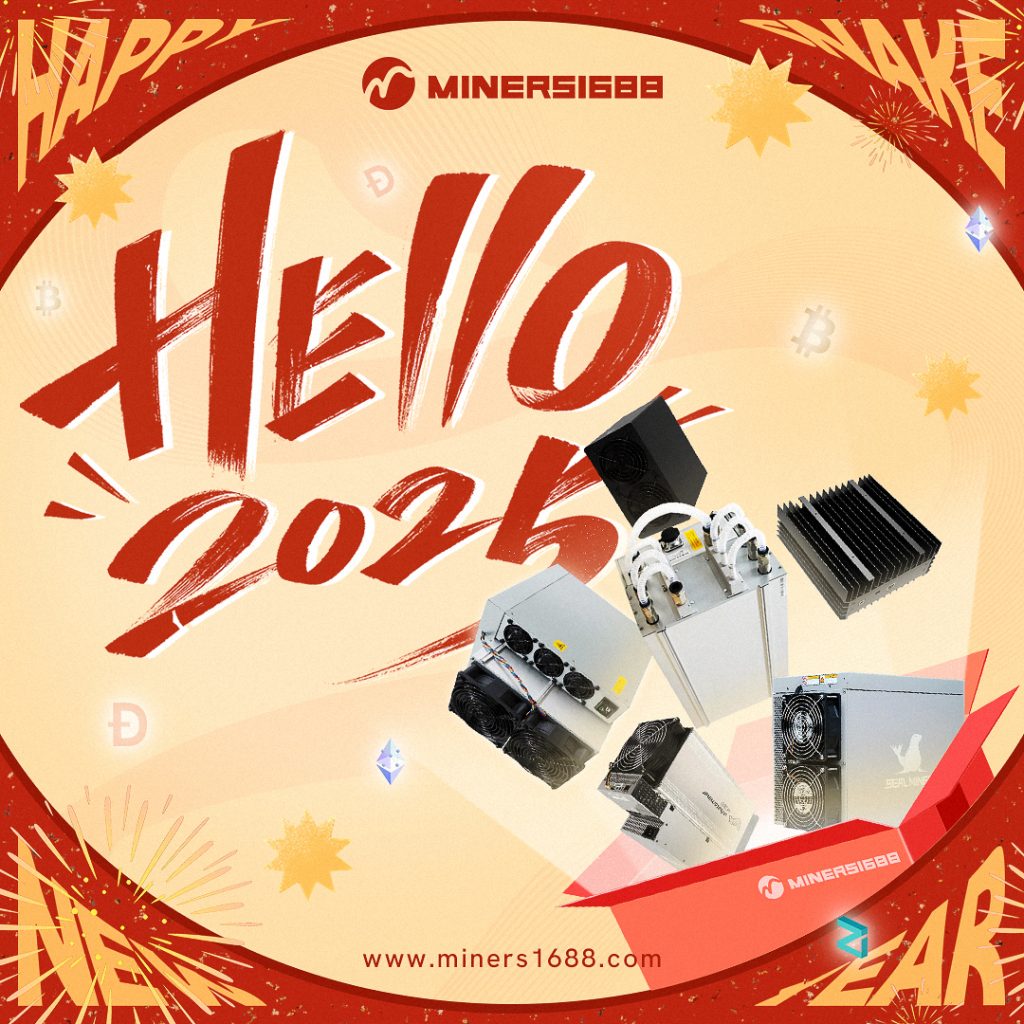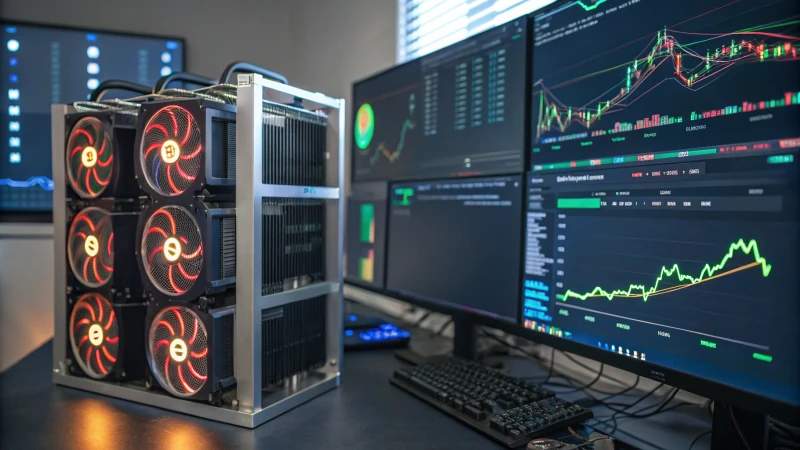
Entering the world of cryptocurrencies feels like walking into a maze. Many paths lie ahead. Confusion arises about which one is safer. Mining or trading?
Crypto mining usually provides more control over your assets. It also comes with lower chances of fraud. Trading often involves higher price swings. It also carries risks of potential scams. Knowing these differences really helps in choosing wisely.
I remember my first step into crypto. My heart raced as I navigated exchanges. I worried if my investments would disappear overnight. Through my journey, I learned important lessons. Both crypto mining and trading offer benefits, yet they have different risks. Mining gave me control. I felt more secure because I wasn’t fully at the mercy of changing markets. However, I faced high upfront costs and complex technical issues. Trading felt thrilling but unpredictable. One moment, I was very happy, then faced a big loss. Balance is delicate here. Understanding these dynamics is crucial for anyone interested in crypto. It really matters.
What are the inherent risks of crypto mining?
If you consider joining crypto mining, it’s vital to know what you might encounter. I discovered this through experience. Mining involves more than just the excitement of earning crypto.
Crypto mining holds several natural risks. These include high upfront costs, technical difficulties, security weaknesses, environmental effects and market changes. Knowledge of these risks is very important. Understanding them is really crucial before starting mining activities.
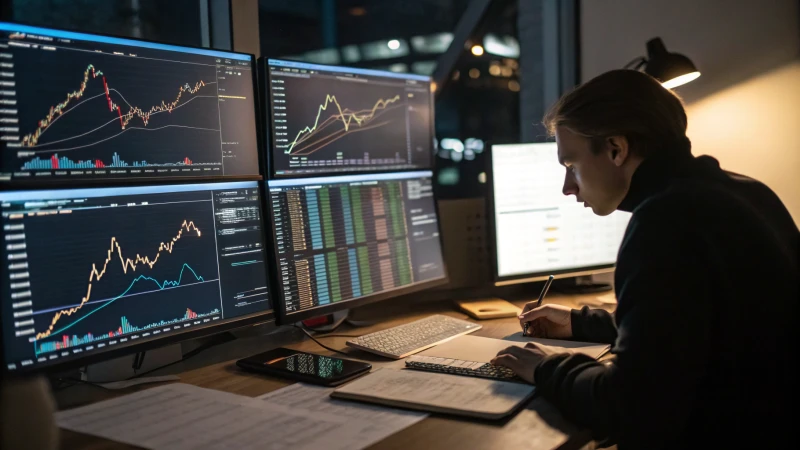
Initial Investment Risks
One big risk was the initial investment. Mining hardware costs a lot. I saw prices from $2,000 to $10,000 and felt nervous. Moreover, the ongoing electricity costs can significantly impact profitability over time and eat into gains. If market conditions change, such as a drop in cryptocurrency prices, miners may find it challenging to recoup their investments.
Item Estimated Cost Mining Hardware $2,000 – $10,000 Monthly Electricity $100 – $1,000 Maintenance Variable Table: Estimated Costs of Crypto Mining
Technical Challenges
Technical problems also came up. Initially, I felt like a tech expert, but soon troubleshooting became common. My setup crashed when I thought I fixed everything. Additionally, miners must stay updated on regulatory changes that can affect mining profitability; for example, energy rules changed often, making my work hard like a long race.
Learn more about the impact of regulations1 on mining operations to understand potential challenges better.
Security Vulnerabilities
Security is another big risk in mining. Though I felt secure with my hardware, hacking news scared me. If a miner’s system is compromised, they could lose their mined coins or have their personal data exposed. When joining a mining pool, I remembered these groups might face cyberattacks.
- Tip: Treat security with importance! Use strong passwords and enable two-factor authentication to protect your mining work.
Environmental Concerns
Mining isn’t just about earning; it impacts the planet. High energy use made me question if I helped create a sustainable future. Some studies suggest that mining operations contribute to increased carbon footprints and environmental degradation.
Explore the sustainability issues2 surrounding crypto mining for further insights into its environmental impact.
Market Volatility
Now, consider market volatility. I experienced this harsh lesson when Bitcoin value dropped after a long mining day. Seeing potential profits vanish was upsetting; my venture felt risky. A sudden price drop can render mining operations unprofitable overnight.
Key Takeaway: Watching market trends is crucial for managing risks well and deciding wisely about your operations.
How does market volatility affect crypto trading?
Do you ever feel excited when the market goes up, only for it to fall quickly afterward? I definitely do! Let’s explore how market changes affect crypto trading. This situation matters a lot to us traders.
Market volatility greatly affects crypto trading. It brings chances for profit but also risks of loss. Traders need to create strategies to handle these changes well.
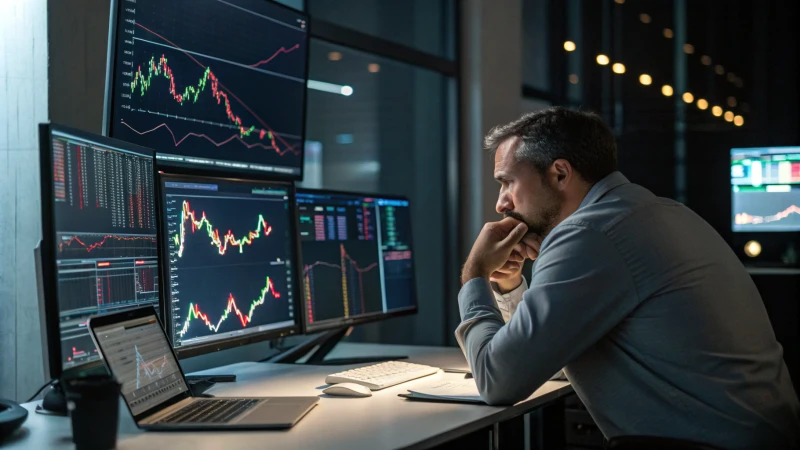
Understanding Market Volatility in Crypto Trading
Market volatility is like the heartbeat of crypto trading – sometimes racing, sometimes slowing down. Fluctuations can either fill pockets or leave them empty. I remember my first time trading Bitcoin. It rose 20% in just a week. It was exhilarating! But the very next day, Ethereum dropped 15%. It was gut-wrenching. This taught me that volatility can be thrilling but also brings heartache.
Market volatility refers to the fluctuations in the price of assets, including cryptocurrencies. In the context of crypto trading, high volatility can lead to both opportunities and risks. For instance, a trader might profit from rapid price changes, but at the same time, they could incur significant losses if the market moves against them.
Consider the following table that outlines how volatility impacts trading:
| Volatility Impact | Description | Example |
|---|---|---|
| Opportunities | Traders can buy low and sell high quickly. | A 20% increase in Bitcoin over a week can be capitalized on. |
| Risks | Sudden price drops can lead to margin calls or liquidation. | A 15% drop in Ethereum in a day may wipe out profits. |
High volatility is a double-edged sword; while it can create lucrative trading opportunities, it also necessitates strong risk management strategies.
Factors Influencing Volatility
Many factors cause cryptocurrency volatility. Market sentiment, regulatory news and economic trends all play roles. Understanding these helps traders predict market movements.
- Market Sentiment: News or social media trends can cause panic selling or buying.
- Regulatory Changes: Regulation announcements can drastically change prices, causing volatility.
- Economic Events: Global economic events influence trading behavior, adding to price changes.
Find more on news and market sentiment here: Market Sentiment Analysis3.
Strategies for Navigating Volatility
Traders use strategies to manage risks from volatility due to unpredictable crypto markets. Here are some effective methods:
- Stop-Loss Orders: Setting stop-loss orders has saved me from many big losses by automatically selling assets at a set price.
- Diversification: Investing in different cryptocurrencies reduces overall risk and helps me sleep better.
- Position Sizing: Controlling how much money I use for each trade limits losses in volatile conditions.
Learn more about trading strategies here: Risk Management Strategies4.
Conclusion Without Conclusion
Recognizing market volatility is essential for every crypto trader. Navigating volatility with informed strategies greatly affects trading success. Trust me, every trader has felt the highs and lows of this rollercoaster ride.
How can I ensure my crypto transactions are safe?
When I first started exploring the world of cryptocurrency, I felt both excited and anxious. The potential for profit seemed huge. The risks were also very significant. Here’s what I’ve discovered about keeping my digital assets safe.
Use secure wallets for safe crypto transactions. Enable two-factor authentication for extra protection. Avoid public Wi-Fi when dealing with cryptocurrencies. Conduct security audits regularly. Be cautious with links and emails. These actions significantly improve your security. They protect your investments.
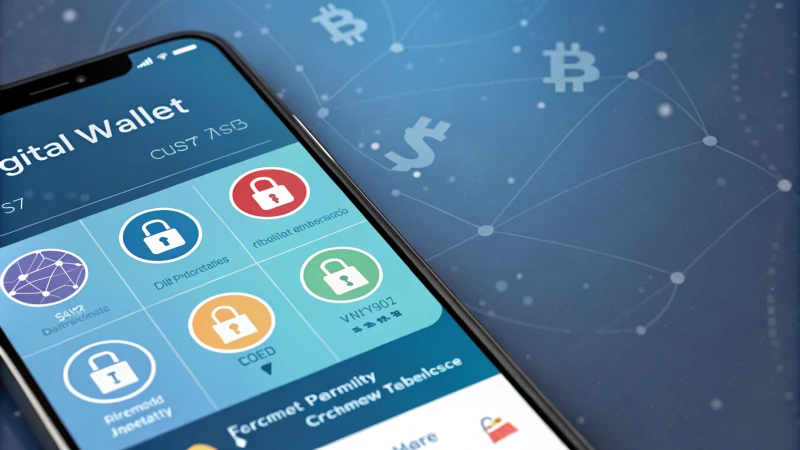
1. Use Secure Wallets
One of the most critical measures to protect your cryptocurrency is to use secure wallets. There are two primary types:
- Hardware Wallets: These small devices really changed the game for me. They keep my private keys offline, making them very hard for hackers to access.
- Software Wallets: If you pick this type, choose a reputable one that offers strong encryption and backup options. Look for wallets that support multi-signature5 transactions for added security.
2. Enable Two-Factor Authentication (2FA)
Enabling 2FA greatly improved my security by adding a second layer of protection to my accounts. Most exchanges and wallets allow you to enable 2FA using apps like Google Authenticator or Authy, which require an extra code with your password for login. This step makes me feel safer.
3. Avoid Public Wi-Fi Networks
I used to connect to public Wi-Fi without a second thought, but a friend’s horror story of getting hacked changed my mind. Always use a secure, private connection when accessing your crypto accounts and consider using a VPN to encrypt your internet connection and protect your sensitive information.
4. Conduct Regular Security Audits
Regularly checking my account activity and settings is my habit. It helps me catch unusual transactions early and make it a point to change passwords periodically on my end, ensuring they are strong by combining letters, numbers, and symbols.
| Security Measure | Description | Recommended Action |
|---|---|---|
| Secure Wallets | Use hardware or reputable software wallets | Research and choose the best wallet |
| Two-Factor Authentication (2FA) | Add an extra verification step | Enable 2FA on all accounts |
| Avoid Public Wi-Fi | Prevent data interception | Use private connections or VPNs |
| Regular Security Audits | Monitor account activity | Change passwords and review settings often |
5. Be Cautious with Links and Emails
Phishing attacks sneak in easily; I nearly fell for them! Now, I verify email sources and links before clicking anything. Always verify the source of emails or links before clicking on them, using official channels to access your exchange or wallet instead of following links from emails.
6. Keep Software Up to Date
Updating software is an easy but often neglected step that can significantly reduce the risk of hacks. I keep my wallet software and antivirus updated regularly because developers frequently release updates to address vulnerabilities and improve security measures.
By incorporating these measures into your cryptocurrency practices, I feel more secure and confident about safeguarding our digital assets in this volatile market.
How Do Regulations Affect the Safety of Mining Compared to Trading?
Regulations go beyond being simple rules. They shape our experiences in crypto mining and trading. But how do they truly compare in terms of safety? Let’s explore this together!
Regulations greatly affect the safety of crypto mining and trading. Mining enjoys enforced rules that increase safety in their operations. On the other hand, trading often has very little oversight. This lack exposes traders to more risks of fraud and scams. Fraud and scams are real dangers for traders.
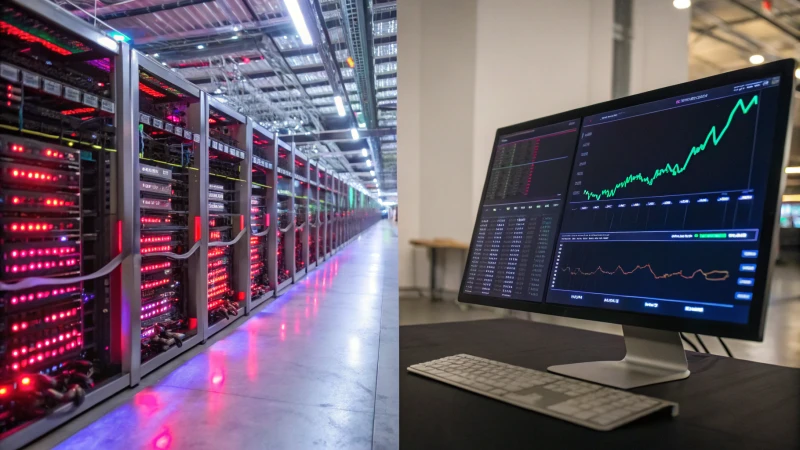
Understanding Regulations in Crypto Mining and Trading
Regulations can play a pivotal role in shaping the safety landscape of both crypto mining and trading.
Impact of Regulations on Mining Safety
In the realm of crypto mining, regulations can significantly influence operational safety. For example, certain jurisdictions may impose strict environmental regulations that miners must follow. This can lead to:
- Increased Safety Protocols: These rules push miners to use methods for protecting nature. These tactics can also really improve safety for miners like us.
- Licensing Requirements: Getting licenses means only skilled groups can run mining places. This cuts down risks tied to unchecked activities.
On the downside, strict regulations could also lead to higher operational costs, which may discourage smaller miners from entering the market. If you want to learn more about the specific regulations affecting mining, check out this in-depth analysis6.
Trading Regulations and Their Effects on Safety
Conversely, trading activities are governed by a patchwork of regulations that vary widely across jurisdictions. The implications include:
- Consumer Protection Laws: Many rules force exchanges to meet standards to protect traders from scams. This brings me peace of mind then.
- Transparency Requirements: Rules often require exchanges to share information. This helps traders decide smartly. For example, I like when exchanges clearly show their fees and safety actions. It really makes trading feel secure.
However, the lack of uniform regulations across the globe can expose traders to significant risks. Many platforms operate in jurisdictions with little oversight, increasing the likelihood of scams. To understand more about trading regulations and their impact on safety, you might find this comprehensive guide7 useful.
Comparative Analysis of Mining vs Trading Regulations
| Aspect | Crypto Mining | Crypto Trading |
|---|---|---|
| Regulatory Environment | Often subject to local environmental laws | Varies widely; often less stringent |
| Safety Protocols | Mandated safety measures in some jurisdictions | Consumer protection laws may apply |
| Operational Costs | Can be high due to compliance | Lower initial costs but high risk |
| Fraud Risk | Lower if operating within regulations | Higher due to unregulated exchanges |
The regulatory environment can thus serve as a double-edged sword; while it can enhance safety for miners through enforced standards, it can also impose challenges that affect profitability and market entry. Meanwhile, traders face a landscape where the safety net is often threadbare due to insufficient regulations. To delve deeper into how these aspects play out in real-world scenarios, consider exploring this case study8.
Заключение
In summary, while regulations have the potential to significantly influence safety in both mining and trading, the effects can vary widely based on enforcement and jurisdiction. Understanding these dynamics is crucial for stakeholders in both sectors as they navigate their respective environments.
What strategies can minimize risks in both mining and trading?
Have you ever felt that sinking feeling when a market turns against you or when mining equipment stops working? I have experienced this too. Let’s explore some genuine strategies to navigate these challenges. These strategies probably keep our investments safer and more secure.
To reduce risks in mining and trading, I suggest diversifying assets. Invest in quality equipment. Use stop-loss orders. Pick trusted exchanges. Check your investments regularly. Stay informed about market trends. This really helps protect your investments.
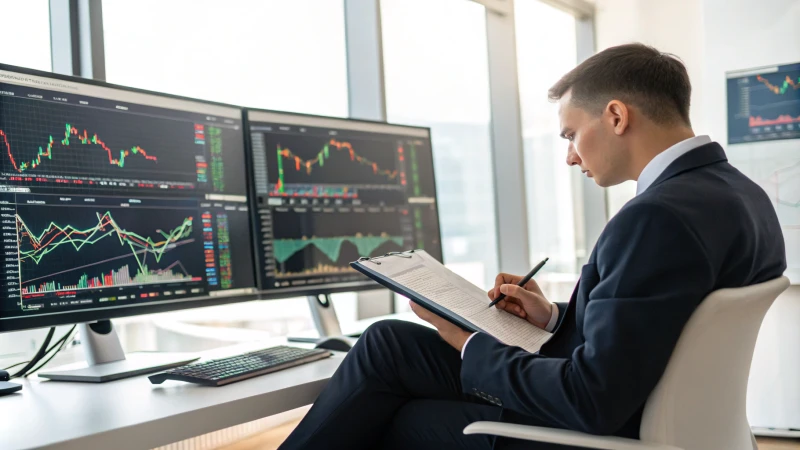
Understanding the Risks in Mining and Trading
To effectively minimize risks in both mining and trading, it’s essential to first identify the unique hazards associated with each activity. For mining, the primary risks include:
- Initial Investment Costs: The money needed for hardware and electricity is huge. I often felt both hope and fear while thinking about my spending.
- Technical Failures: My mining machine sometimes stopped working suddenly. This left me both upset and doubtful about recovering my money.
- Market Fluctuations: Watching Bitcoin prices fall sharply was really upsetting. It was like a wild ride, with no safety measures.
In trading, the risks manifest as:
- Market Volatility: Prices change very quickly. One moment, I felt smart and the next, I was really worried.
- Fraud and Scams: Scamming was always a concern, especially using less-known exchanges.
- Regulatory Risks: New rules can appear overnight. I had to adapt fast to avoid problems.
Risk Mitigation Strategies for Mining
- Diversify Your Mining Assets:
- I learned not to rely on just one option. Investing in different cryptocurrencies reduced my risk.
- Example: Mining Ethereum, Litecoin, and Bitcoin at the same time gave me balance during market drops.
- Invest in Quality Hardware:
- I learned this lesson. At first, I bought cheap equipment and faced many problems. I now choose reliable brands known for lasting quality.
- Join Reputable Mining Pools:
- Working with others in mining pools lessens the pressure. Sharing rewards and risks with others is comforting.
- I research pools to be sure they have good reputations and are trustworthy. Learn more about mining pools9.
Risk Mitigation Strategies for Trading
- Implement Stop-Loss Orders:
- Using stop-loss orders felt like having safety. These orders sell assets at a certain price, preventing big losses.
- Conduct Thorough Market Research:
- Staying updated has saved me many times. I regularly check market trends and news affecting my trades. Resources like crypto news sites10 are very helpful.
- Use a Reputable Exchange:
- Trust is crucial! I pick platforms with good security and positive reviews. Knowing an exchange follows regulations ensures peace of mind.
Comparative Risk Management Table
| Risk Factor | Mining Strategies | Trading Strategies |
|---|---|---|
| Initial Investment | Diversify your mining assets | Start with smaller trades |
| Technical Failures | Invest in quality hardware | Use reliable trading software |
| Market Fluctuations | Join reputable mining pools | Set stop-loss orders |
| Fraud and Scams | Choose reputable mining pools | Trade on regulated exchanges |
| Regulatory Changes | Stay informed about regulations | Research potential impacts before trading |
Additional Considerations
- Risk Assessment: I often review my risks in mining and trading. Tracking investments helps in changing strategies when needed; surprises are never welcome.
- Education and Training: Learning is really powerful! Online courses and webinars have reshaped my mining and trading approach. Explore educational resources11.
Заключение
The article compares crypto mining and trading, emphasizing that mining offers more control and lower fraud risk, while trading is subject to high volatility and potential scams.
- Clicking this link will provide detailed insights into the regulatory landscape affecting crypto mining, helping you navigate potential challenges effectively.
- This link leads to a resource that discusses the environmental impact of crypto mining and its sustainability challenges.
- Clicking this link provides additional resources on managing risk in volatile markets, which is crucial for informed trading decisions.
- This link offers insights into market sentiment analysis, helping you understand how external factors impact crypto prices.
- Learn about essential security practices that can help protect your crypto assets from threats and fraud.
- Explore how regulations shape mining safety and what this means for traders and miners alike.
- Understand the regulatory landscape for crypto trading and its implications for trader safety.
- Discover case studies comparing safety measures in crypto mining vs trading under regulation.
- Explore proven strategies to safeguard your investments in crypto mining and trading, ensuring you navigate risks effectively.
- Learn about tools and resources that can help you minimize risks while engaging in crypto activities.
- Discover essential education resources that provide insights into minimizing risks in crypto mining.


